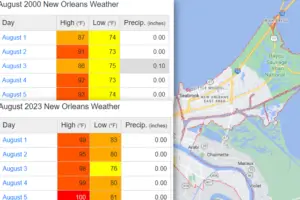Blue Cross and Blue Shield Louisiana plan to join Elevance Health, formerly known as Anthem, in a deal expected to close later this year, the companies announced Monday.
Blue Cross and Blue Shield Louisiana is the state’s largest insurer, with more than 1.9 million policyholders. They will join Elevance’s network of 119 million people, which includes customers outside the Blue Cross brand. The two companies declined to say how much the deal cost.
Blue Cross CEO Dr. Steven Udvarhelyi said the company’s 3,000 employees in Louisiana will also join Elevance, but operations for the Louisiana plan will remain at Blue Cross headquarters in Baton Rouge.
Dr Steven Udvarhelyi, president and CEO of Blue Cross and Blue Shield of Louisiana, is pictured Wednesday, July 28, 2021.
“We’re going to stay here as a locally based blue plan,” Udvarhelyi said. “We’re going to stay in our offices.”
Udvarhelyi said policyholders should expect their plans to continue without change for the time being. Once the acquisition is complete, Udvarhelyi and Elevance executive vice president Morgan Kendrick said members could expect an expansion of what they called “whole health capabilities” – such as an integration of behavioral and physical health, extra attention to high-risk seniors, pharmacy solutions, and palliative care.
“Once we join Elevance, in two years we will have the advancement in capabilities that would take us 10 years to do on our own,” Udvarhelyi said.
Louisiana will be the 15th state Blue Cross plan to join Elevance, which changed its name from Anthem Inc. Last year to rebrand itself as a company with broader healthcare interests.
Cost, regulation drove acquisition search
Blue Cross began looking for such a partnership two years ago, Udvarhelyi said, because of the rising cost of acquiring digital capabilities and the difficulty of investing quickly in services such as chronic care, palliative care and behavioral health.
“The cost of doing that and the time to scale is just getting big,” Udvarhelyi said. “On top of that, we’re all subject to increasing regulation at the federal and sometimes state level.”
The insurance industry is also made up of ever-larger players, making it harder for smaller companies to keep up.
“We can’t play on that playing field the way we are today, but by joining with Elevance we will have access to much larger resources where we can actually compete with national competitors in a much more meaningful way,” Udvarhelyi said.
Deal subject to state and federal approvals
The agreement is subject to approval by the Louisiana Department of Insurance and the Federal Trade Commission. In the past, insurance company acquisitions have been derailed by concerns that they would reduce competition in the market.
Health economist Walter Lane, a professor at the University of New Orleans, said the deal is unlikely to be challenged by regulators because it doesn’t involve two Louisiana companies merging for a bigger piece of the health insurance pie, and therefore doesn’t increase the company’s concentration in that area.
“Blue Cross is already the big gorilla in the market, holding the majority of the policies,” Lane said. “Since all the other (Elevance companies) are in other states, it doesn’t seem to make a difference in the competitive environment.”
Such mergers are typically motivated by a number of factors, says Lane. One is that a large company has a larger base from which to spread the risk among policyholders. The more people who are members, the less it hurts the insurance company financially if some policyholders have sky-high medical costs.
Operating costs, such as claims processing, should go down, says Lane, and joining a larger company may also help Blue Cross protect itself against catastrophic losses, such as a localized disease outbreak.
Impact on health care costs, quality
Joining a larger company will give BCBSLA more money to invest in potential improvements for policyholders, said Vivian Ho, a health economist at Rice University and a professor at Baylor College of Medicine. But there is little data on how mergers affect customers.
“There simply aren’t any studies showing that quality improves after insurers consolidate,” Ho said. “The insurer can achieve savings, but because it’s a concentrated market, there’s nothing to force them to pass on the savings.”
Udvarhelyi cited healthcare inflation as another driver for the merger, and admitted he couldn’t predict how costs would change. But he said the services and platforms BCBSLA would have access to through Elevance would help control costs.
“What I can say for our customers and policyholders is that they will see better improvements in health and lower increases in health care costs than if we continue to do this alone,” Udvarhelyi said.

Andre Rogers has been a content and opinion writer for many popular online publications over the years. Andre is now our chief editor at Louisiana Informer. Andre specializes in current trends and technology.






